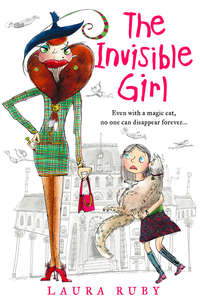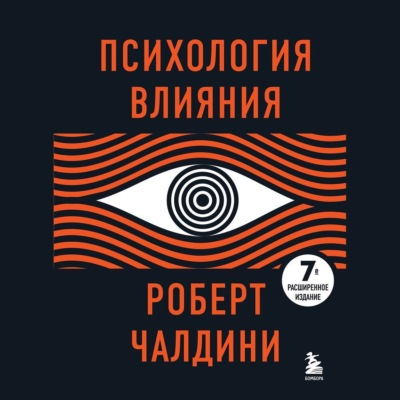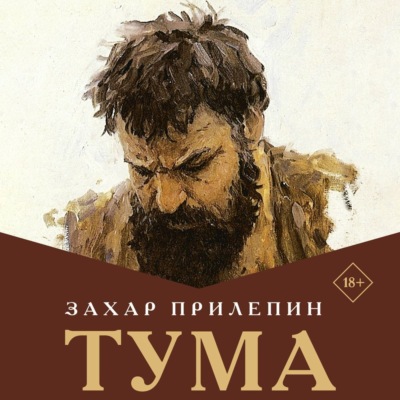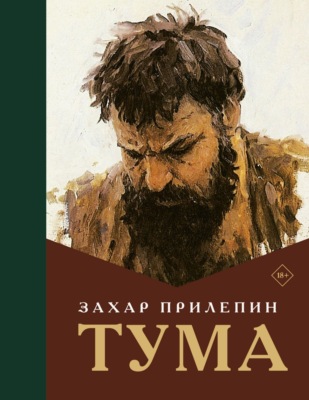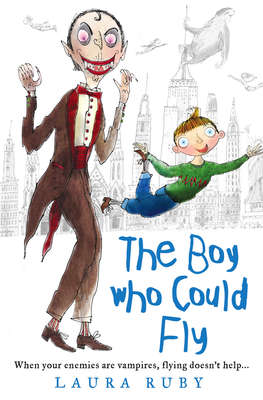Buch lesen: "The Invisible Girl"
The Invisible Girl
Laura Ruby

For Anne, who has kittens in her pockets And for Gretchen, the original Answer Hand
Table of Contents
Cover Page
Title Page
Dedication
The Professor Remembers
Chapter 1 The Girl Who Wasn’t There
Chapter 2 Blue Foot, Blue Foot
Chapter 3 The Chickens of Hope House
Chapter 4 Bugged
Chapter 5 Attack of the Umbrella Man
Chapter 6 Mrs Terwiliger’s Monkeys
Chapter 7 What Not to Wear
Chapter 8 Sweetcheeks: A History
Chapter 9 Outsides and Insides
Chapter 10 Two Little Mice
Chapter 11 Flyboy
Chapter 12 The Richest Man in the Universe
Chapter 13 Turkey Burger
Chapter 14 The Queen Said “Ouch”
Chapter 15 The Punk Invasion
Chapter 16 The Face in the Mirror
Chapter 17 Never Trust a Monkey
Chapter 18 Run
Chapter 19 What’s It To You? Has His Say
Chapter 20 Ups and Downs
Chapter 21 The Black Box
Chapter 22 The Tower
Chapter 23 Supa Dupa Fly
Chapter 24 The Big Fat Hairy Fib
Chapter 25 Bugbears and Bugaboos
Chapter 26 Sweetcheeks Spills
Chapter 27 Unzipped
Chapter 28 Golden
Ha!
Acknowledgements
Copyright
About the Publisher
THE CHAPTER BEFORE THE FIRST
The Professor Remembers
IN A VAST AND SPARKLING city, a city at the centre of the universe, one little man remembered something big.
He was very old, this little man, his full name forgotten over the years. He called himself The Professor. His specialities were numerous and included psychology, criminology, mathematics, history, aerodynamics, zoology and gardening. He also collected beer cans.
Other than the delivery boy who left his groceries at the back door, The Professor hadn’t seen anyone in at least ten years. It was just as well, since a hair-growing experiment had left him with a head full of long green grass. Also, he didn’t like clothing, so he wore ladies’ snap-front housedresses and rubber flip-flops with white socks. He spent much of his time fiddling in his workshop, feeding the many kittens that popped out of his pockets and looking things up on eBay.
Today he stood in front of his blackboard—which was covered with mathematical equations—tugging at a dandelion that had poked up through the lawn on his scalp. Suddenly, his eyes widened. He scrawled a few more equations. Yes! He saw it. Right there, in his many calculations.
A child.
He stared at the figures dancing across the board, his forehead creased with annoyance. How on earth he could have forgotten that such a thing, such a person, existed, was beyond him. But The Professor simply didn’t like people. Not their company, not their conversation, nada. Anything having to do with people made the roots of his teeth pulse with irritation. And here on his blackboard was proof that a very particular sort of person had been born into a cruel and stupid world filled with cruel and stupid people.
Frankly, The Professor wanted nothing to do with any of them.
But facts are facts and The Professor liked to keep his straight. Shaking his head at himself, he sat down at his lab table, pulled his notebook from underneath a large tabby cat and made a few notes. “Approx. once every century or so,” he wrote. “Wall. Usually, but not always, female.”
After scribbling these notes, The Professor smoothed out a rumpled map. “One lived here,” he muttered to himself, putting a dot on the map, “another here. This one was born there and moved here.” When he finished plotting points, he connected the dots, then took out a protractor to measure the angles between. Lost in thought, he tapped his teeth with his pencil. Something wasn’t quite adding up. Where could this girl be?
After working for two frustrating hours, he walked over to a filing cabinet, unlocked the bottom drawer and pulled from it what looked like a human hand mounted upright on a black marble stand. The Answer Hand. He did not like to consult The Answer Hand and very rarely did. The Hand, being a hand, could not speak and was therefore difficult to comprehend. (It knew the sign language alphabet but had to spell everything out. And then it talked in circles.) The Professor could not deny, however, that The Answer Hand often had the answers to perplexing questions, which was exactly why The Professor had purchased it (on eBay of course, from some guy in Okinawa).
He put the mounted Hand on top of the table, pointed at the equations on the blackboard and then to the map. “Where?” he asked.
The Answer Hand’s fingers drummed thoughtfully on its marble base. After a few moments, The Hand began rambling about a number of irrelevant topics: the average rainfall in Borneo, the merits of California wine, the fat content of hot dogs.
“Focus!” barked The Professor, pointing again at the blackboard.
Insulted, The Answer Hand made a waving gesture at the map. When The Professor still didn’t understand, The Hand bent at the wrist and finger and crawled across the table, dragging its heavy base behind it. It grabbed the pencil from The Professor, scrawled a star on the map and gave the pencil back.
There, that’s where, The Hand signed. Happy now?
“I’ve got to hand it to you,” grumbled The Professor sarcastically. He had the distinct feeling that this recent discovery was only going to cause him trouble. Plus there was the fact that one of his cats, Laverna—strong willed, even for a cat—had somehow escaped the safety of his apartment and, despite the flyers he had paid a company to hang around the city, no one had called. In his book, wandering girls and wayward cats added up to a whole lot of unhappiness.
Someone knocked on the door. The Professor scowled, as there hadn’t been a knock on the door since, well, the last time there was a knock, possibly months before, years even. The Professor ignored it.
The knock came again, louder. “I only take deliveries Tuesdays and Sundays. Go away,” grumbled The Professor. “Go, go, go.”
There was a crash as somebody kicked in the door, splintering the jamb. The Professor, always peeved when he was disturbed, was especially rankled. He liked the door the way it was.
Two men strolled down the steps leading to The Professor’s rooms. One was handsome, with thick gold hair and a rosy complexion. The other was impossibly tall and dark, a vicious and terrible scar like a huge zipper running diagonally across his face. Both looked familiar, but The Professor couldn’t remember where he’d seen them before. A book? A newspaper? And there was something odd about the way the scarred man moved. Not walking so much as drifting or floating.
“Professor,” said the handsome one cheerfully. “I hope you don’t mind the intrusion.”
They were, now that he’d had a few moments to consider it, rather intimidating. “I have important work to do,” said The Professor, sounding not the least bit frightened, though his knobby knees had gone as weak as egg noodles.
The handsome man stared pointedly at his head. “I see that you have some dandelion issues.” He patted the pockets of his overcoat. “I might have a Weedwhacker around here somewhere.”
“What do you want?” The Professor made more notes in his book: “Two scary men. Need weapon. Sharpen pencil?”
The handsome man hesitated, as if waiting for The Professor to say something else. “I’m being rude,” he said. “I’m Sy Grabowski.”
How do you do, Sweetcheeks? The Answer Hand signed politely.
The Professor dropped his pencil to the floor. “Sweetcheeks Grabowski?”
“In the flesh,” said the man, obviously proud that his reputation had preceded him. “This is my associate, Mr John.”
“Odd John,” said the Professor. Odd John grinned. The Professor could see his teeth were tiny, like a child’s. And he could also see that the scar was not like a zipper, it was a zipper. The silver tab on his forehead glittered when he moved. The Professor decided he would not like Mr John to unzip his face. No. That wouldn’t be pleasant; he was sure of it.
Sweetcheeks reached out and plucked the dandelion from the top of The Professor’s head, making the little man wince. “We’re a little curious.”
“Yes, you are. I mean, what about?” said The Professor. He was trying not to focus on The Answer Hand, which was busily erasing the star it had marked on the map and putting another star somewhere in Brooklyn.
“About your research, of course.” Sweetcheeks eyed the cats warily, his lip curling up with disgust. “I thought these animals were rare.”
“They are,” The Professor said and pulled a rambunctious marmalade kitten out of the pocket of his housedress. “Just not here.” He placed the kitten directly on top of the map, obscuring what had been drawn on it.
“Hmmm…” said Sweetcheeks, before turning the notebook around to read what The Professor had scribbled there. He smiled when he came to the last bit about the scary men.
“I do lots of research,” said The Professor. “What are you interested in? Zoology? Psychology?”
“Oh, a scrap of this, a shred of that,” Sweetcheeks said. “I’m especially interested in this curious little thing that happens once every century or more. This very odd thing. Do you know the thing I’m talking about?”
“Yes,” said The Professor, wondering how the man had found out about it. He sighed. “You want to know when it happened, I suppose.”
“I already know when it happened. I need to know where and I need to know who. And,” he said, turning the notebook back to face The Professor, “I need to know now.”
“Who? I don’t know who it is,” said The Professor. “How would I know that until she shows herself? Er, I mean, until she doesn’t show herself rather. As for where, I can’t be sure…”
“You can’t?” said Sweetcheeks. Using his thumb and forefinger, he lifted the tiny kitten from The Professor’s map. “Look on this map, John. A star!”
“Oh, that?” said The Professor. “You mustn’t pay attention to that. That map marks the sites of vampire nests around the city, that’s all.”
“Vampires? Tsk, tsk, Professor. I would think that you would be able to come up with something more creative than that.” Sweetcheeks took the map, folded it and slipped it into his breast pocket. “That takes care of where. Now I need to know who.”
“I’m telling you, that map is meaningless to you.”
“I think The Professor needs a little encouragement, don’t you, Mr John?”
Uh-oh, signed The Answer Hand.
“But…” stammered The Professor.
“Please,” said Sweetcheeks. “I know that you’re a genius. Everyone knows that. I also know that given the proper motivation, you’ll find a way to get the information I need, won’t he, Mr John?”
The big man smiled with his baby teeth and clasped the silver tab of his zipper, drawing downwards ever so slowly.
The Professor had been correct.
Not pleasant. Not pleasant at all.
Chapter 1 The Girl Who Wasn’t There
GURL HAD NO IDEA WHAT made her do it. One minute she was surrounded by a sea of snoring girls, staring at the broken lock on the dirty window. The next minute she was racing through the city like an ostrich on fire.
She ran many blocks before she stopped, shocked at herself. She—Gurl the gutless, Gurl the helpless, Gurl the useless—had escaped from Hope House for the Homeless and Hopeless, even if it was only for the night. In front of her, the city snaked out like an amusement park. Gurl drank in as much as she could: the glittering lights of the buildings, the laughter of the people floating by, the bleating horns of the taxis, the scent of car exhaust tinged with tomato sauce.
It was this last that drew her to the section of the city called Little Italy, to Luigi’s Restaurant. She loitered in front of it, catching her breath as she watched the diners inside sip wine and twirl spaghetti on to their forks. People-watching was her favourite thing to do and she was very good at it. It seemed to Gurl that everyone was either a watcher or a doer and the watchers were greatly outnumbered. However, there were benefits to watching. For example, inside Luigi’s a couple drifted from their table, forgetting a package of leftovers, which was then scooped up by the young waiter.
Gurl ran around the restaurant to the alley behind, crouched next to the garbage cans and waited for the waiter to come out with the evening’s trash. Someone kicked a can down a nearby sidewalk and its tinny clang echoed in the alley. “You wanna mess? You wanna mess?” she heard. “Yeah, boyee, let’s mess!” The voices got louder as a bunch of teenagers flew by the alleyway, throwing long shadows on the greasy pavement. Gurl smiled to herself. The noise was a part of the music of the city and she could listen to it all night long if she wanted.
She leaned her head back against the brick and looked up at the sky, plush and grey like a dome of fur, brightened by the lights from the skyscrapers and billboards. An occasional Wing darted high overhead, looping and weaving around the buildings, but it was nothing like daytime. In the daytime people hopped and bounced and flew all over the place, even if they could only get an inch or two off the ground. Just one more reason to enjoy the dark. Only a few showy Wings rather than thousands of them, thrilled with their own stupid tricks.
Airheads, the whole bunch. She was not jealous of them. Not one little bit.
The metal door of the restaurant opened and the young waiter hopped out, swinging two garbage bags. Even with the garbage bags, the waiter was trying to fly. He jumped straight up, but the weight of the bags and his obvious lack of talent ensured that his feet lifted no more than a yard from the ground. Gurl muffled a giggle with the back of her hand as the waiter jumped his way over to the Dumpster, looking very much like a giant, ungainly frog. He opened the Dumpster and tossed the trash bags inside. Then he turned and leaped into the air, this time clearing the top of the Dumpster before landing. Gurl was sure the waiter—only a few years older than Gurl herself—had hopes of being a great Wing, dreams of joining a Wing team or maybe competing in the citywide festival and taking home the Golden Eagle. She wondered when he would realize that his dream was just that, a dream. When he would see that most of his life would be spent scuttling closer to the earth.
The waiter dropped in a crouch, panting. He looked around, to the left and to the right. Gurl stiffened, keeping herself completely still behind the garbage cans that hid her. He squinted, staring at something. A mouse, running alongside the brick. The waiter jumped up again, crashing to the ground in front of the mouse. It gave a tiny squeal and ran the other way. The waiter did it again, jumping and crashing, terrifying the little animal, laughing as he did so. Gurl waited until he sprang up a third time before reaching out from her hiding place, snatching up the mouse and tucking it into her sleeve.
The waiter landed, his grin turning to a frown, wondering where his victim had gone. Then, shrugging, he veered around and went back into the restaurant, slamming the door behind him.
Gurl rested her hand on the pavement. The mouse crawled out from the safety of her sleeve and ran into the darkness. “Bye,” said Gurl, watching as it disappeared through a hole in the brick. She supposed she was lucky that the waiter hadn’t seen her, but then again, she was not the type of girl that people noticed—she was too thin, too pale, too quiet. Sometimes people looked right through her as if she weren’t there at all, their eyes sliding off her as if she were made of something too slippery to see. Nobody, nowhere. When she was little, it made her feel lonely. Now she only felt grateful.
She stretched and walked over to the Dumpster. After throwing open the lid, she dug around until she found what she was looking for: four foil-wrapped packages of leftovers. Ravioli, lasagne, salad and a huge hunk of gooey chocolate cake.
If only the other kids from Hope House for the Homeless and Hopeless were here, watching, maybe they wouldn’t think so little of her. But they, like everyone else, believed flying was their ticket to fame and fortune, and thought Gurl was horribly afflicted, maybe even contagious. Mrs Terwiliger, the matron of Hope House, had taken her to a specialist once. First he thumped at her knees with a rubber mallet to check her reflexes. He had her breathe in and out very quickly, hyperventilating, to see if the added oxygen might lift her off the floor like a soap bubble. Then he strapped her into a white quilted jacket with huge feather wings and had her run around the office flapping her arms. Finally, he said: “Not everyone can, you know, and most don’t do it well. In any case, it’s nothing to be ashamed of.” As a consolation, he gave Gurl a red and white beanie with a propeller on the top. Mrs Terwiliger told the other kids that people had different talents and they should celebrate them all. “Leadfoot!” the kids yelled as soon as Mrs Terwiliger left the room. “Freak!”
Gurl smiled bitterly to herself. If they were such big deals, why hadn’t they noticed the broken lock? Why hadn’t they thought to sneak out of Hope House at night? Why weren’t they having dinner at Luigi’s? No, this was hers and hers alone. “No man is an island,” Mrs Terwiliger had told her. “One must learn to get along.” But this sparkling city was an island and it got along fine, didn’t it?
Just as she plucked up a pocket of ravioli with her fingers, she heard a sound, one she had heard only on TV.
“Meow.”
She turned, sure that someone was playing a trick on her. But it was no trick. A cat, as plush and grey as the sky above, padded down the alleyway and sat a few feet from her.
Gurl dropped her ravioli, gaping. She’d seen pictures of cats in books and magazines, of course, but Gurl couldn’t imagine where this one came from. Perhaps it was lost? But how could it be? Nobody let a cat outside; they could get hurt or sick or worse. Plus, there was the matter of people’s regular pets: birds. If people saw a cat, especially without a leash, they’d call the police. What if it attacked an old lady’s budgie or a businessman’s parrot?
The cat regarded her with queer green eyes that glowed in the dark of the alley. “Who belongs to you?” Gurl murmured. Cats chose their owners rather than the other way round; everyone knew that. This cat surely had an owner, someone who liked exotic animals, someone who worked in a zoo maybe. Gurl glanced around at the buildings that rose along either side of the alley. There were lights in some of the windows, but Gurl saw no worried faces in them, heard no frantic calls.
“Meow,” the cat said and took a few steps closer.
“Hey,” said Gurl. “Are you hungry?” She looked at the food in the packages and nudged the one with the lasagne. The cat sniffed, then began to eat in big gulps.
“You are hungry, aren’t you?” Gurl said. “Well, you and me both.” Keeping her eyes on the cat, she reached out and grabbed the package containing cake. Gurl ate like the cat did, in huge greedy bites.
The cat finished everything, right down to the noodles. Then it did something totally unexpected. It walked over to Gurl, reached up with a grey paw and patted Gurl’s cheek, once, twice, three times. Gurl’s eyes opened wide. “No, no, no!” she said. “I can’t take care of you! I’m just an orphan.”
“Meow,” said the cat. It yawned, climbed into her lap and began to make an odd rumbling sound. She’s purring, thought Gurl, who had read about it but never experienced it.
Gurl stared down at the cat. What was she supposed to do now? Where would she keep it? What would she feed it? She shifted her weight and her arm brushed against the cat’s leg. So soft. Hesitantly, Gurl ran a gentle finger between the cat’s ears, the way she would pet a friendly bird. The cat closed its eyes and sighed, pressing its head into her palm.
Just then, the back door of the restaurant flew open and the cat sprang from Gurl’s lap. The waiter marched out the open door carrying another bag of garbage.
“Whoa!” he said. Gurl froze, wishing with all her being that she was nothing more than one of the bricks in the wall. A queer shiver went through her.
But the waiter didn’t even glance in her direction. With his foot, he prodded the opened packages of food. Then he saw the cat standing there, back arched and tail spiked. “What the heck? Where did you come from?”
“Meow,” the cat said.
“Meow is right,” said the waiter. “Here, kitty.”
Since she was so close to him, Gurl could see that his brown eyes were hard and shiny, his smile cold. But why wasn’t he looking at her? Why was he acting as if he couldn’t see her? She was sitting right in front of him, right out in the open! But maybe he was just ignoring her like everyone else. The thought made her angry and she reached out for the cat.
What was wrong with her hands?
She could see them, but just barely. It was as if she were wearing gloves exactly the colours and textures of the alley itself: the black of the pavement, the red of the brick, the pink and white of the graffiti. And when she moved them, they changed to match the background. She touched her face, feeling the heat of her skin beneath her fingertips. If her hands looked like this, what did her face look like?
The waiter bent towards the cat. “Come on now,” he said. “I know someone who’d pay a lot of money to get a load of you.” He lunged for the cat, grabbing it by its front paws. The cat howled. “Shut up, you stupid thing,” the waiter said. The animal hissed, clawing with its back legs.
“Ow!” the waiter yelled, but didn’t let go. Carrying the wildly gyrating cat, he took one huge leap over to a garbage can on the other side of the alley and threw the cat inside. He quickly slammed the cover down and held it. The garbage can bucked and bounced, and the waiter kicked it. “Shut up!” he yelled.
Gurl was furious, but she didn’t know what to do. The waiter wasn’t big, but he was probably stronger than she was. And he could fly, even if he couldn’t do it that well. She unfolded her legs and saw they were exactly like her hands, nearly invisible. If he couldn’t see her, then…
The waiter kicked the garbage can again and the terrified mewls of the cat were too much for Gurl to bear. Though she had never done anything like it before, though she thought her heart would burst like a water balloon, she crept behind the waiter. Grabbing the waistband of his trousers, she yanked upward as hard as she could.
The waiter never flew higher than he did that moment and never would again. Gurl popped the lid off the garbage can. The cat vaulted into her arms, instantly becoming the colour of the air, the colour of nothing. The two of them, Gurl and cat, raced from the alley, just as if they had wings of their own.
Die kostenlose Leseprobe ist beendet.
